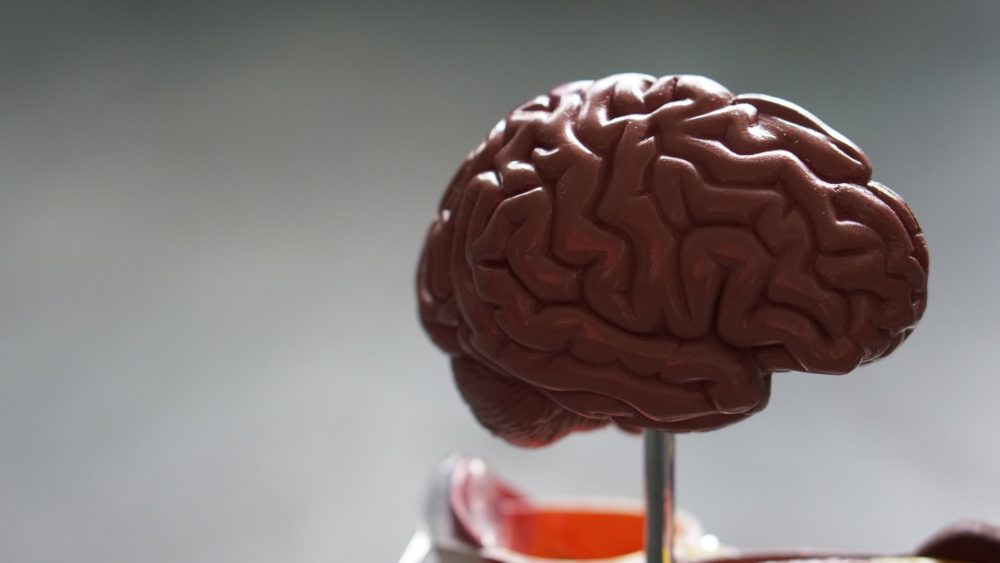九月是世界阿尔茨海默病月,世界各地的人们聚集在一起,提高认识并挑战围绕痴呆症的偏见。 今年的活动强调了痴呆症的警告信号,鼓励人们寻求信息、建议和支持,并联系其所在国家的阿尔茨海默病或痴呆症协会。 我们想借此机会看看 NAD+ 如何帮助那些患有脑部疾病的人。
阿尔茨海默病概述
阿尔茨海默病是导致痴呆症的最常见原因,占所有痴呆症病例的60%至80%。阿尔茨海默病并非“衰老”的简单症状,需要强调的是,它并非正常衰老过程的一部分。不幸的是,它会随着时间的推移而恶化,而且由于目前尚无治愈方法,大多数治疗侧重于减缓患者认知能力的下降,而非改善病情。阿尔茨海默病的症状
阿尔茨海默症患者会出现一系列症状,包括:- 记忆丧失
- 词汇量流失
- 视觉/空间挑战
- 完成任务困难
- 情绪波动
阿尔茨海默症的病因
65 岁以上的人更有可能被诊断出患有阿尔茨海默病,而患有这种疾病的人数每五年就会翻一番。 到 85 岁时,三分之一的人患有阿尔茨海默病。 阿尔茨海默病没有明确的病因,研究人员认为它是由多种不同因素引起的,包括衰老、遗传、环境因素和生活方式。阿尔茨海默病、NAD+和线粒体功能障碍
关于阿尔茨海默病的病因,一种理论认为是神经元和蛋白质的积累。神经元寿命很长,并且会定期自我修复。然而,在阿尔茨海默病患者中,β淀粉样斑块(旨在帮助修复神经元)会聚集并导致神经元死亡。随着时间的推移,这些斑块会越来越多地积聚,最终导致脑萎缩。 除了有害蛋白质的积累外,阿尔茨海默病还与脑细胞线粒体功能障碍有关。线粒体功能失调会导致细胞死亡。在阿尔茨海默病患者中,细胞死亡增多。这是因为阿尔茨海默病会损害大脑正常的DNA修复功能,从而导致炎症和功能障碍。 研究显示,膳食补充NAD+可导致脑内NAD+增加,减少β淀粉样蛋白的产生,减缓患者认知功能的衰退。 许多慢性疾病实际上源于细胞代谢不畅——换句话说,这些疾病与线粒体有关。自20世纪70年代以来,越来越多的疾病被认定与线粒体有关。然而,许多这类疾病已通过补充NAD+得到成功治疗。NAD+研究
研究 由美国国立卫生研究院国家老龄化研究所 (NIA) 的 Vilhelm A. Bohr 博士领导的研究小组着手测试 NAD+ 补充剂是否可以使小鼠大脑中的 NAD+ 水平正常化并抵消思维和记忆方面的缺陷。 研究小组首先培育出一种新型小鼠品系,该品系具有人类阿尔茨海默病的主要特征,例如 tau 蛋白和淀粉样β蛋白的异常积聚。 NAD+补充剂 研究人员将一些物质添加到小鼠的饮用水中,发现三个月后,这些小鼠的DNA损伤、神经元损伤和死亡水平都比对照组小鼠更低,新神经元的生成也更多,脑部炎症也更低。它们在水迷宫等许多学习和记忆测试中的表现也优于对照组小鼠,并且表现出更好的肌肉力量和耐力。 研究小组还测试了患有和未患有阿尔茨海默病的人的细胞。与小鼠研究一样,NR 减少了阿尔茨海默病患者细胞的 DNA 损伤。 看看这项研究未来如何进展以及它如何改善阿尔茨海默病患者的治疗结果将会非常有趣。
分享
Featured products
Discover our most popular items
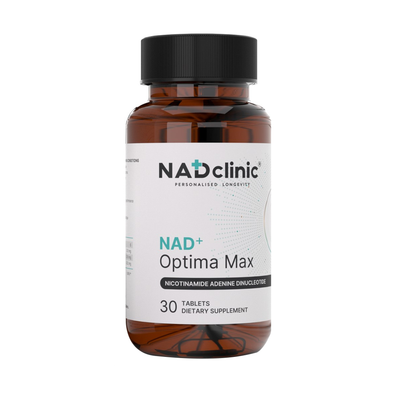
增强的Optima Max 30s(1个月供应)
£74.99

NADSQx 智能注射笔 1000mg
£399.00

NAD+水平测试套件
£199.00
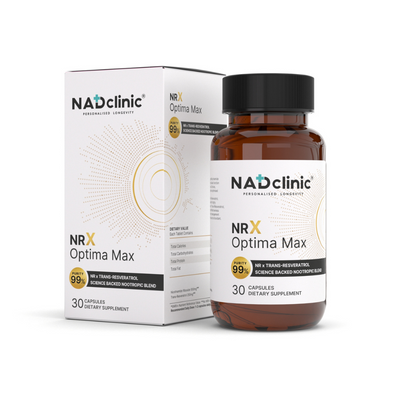
NRX Optima Max
£66.99
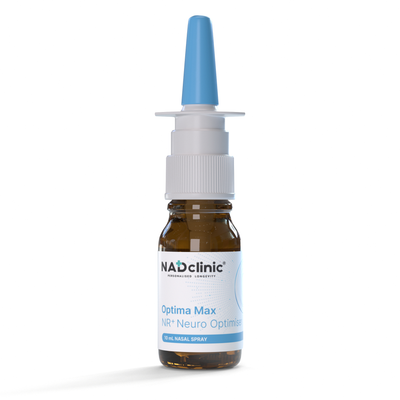
Optima Max - NR Nasal Spray
£34.99
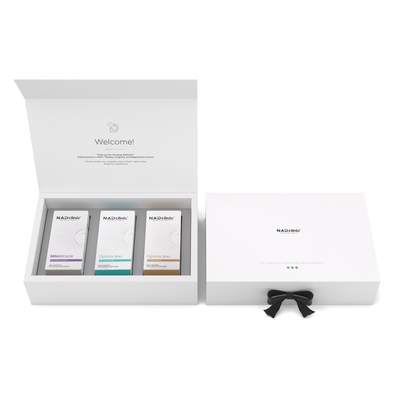
Optima Max-礼品盒套装
£264.99
阅读更多

国际幸福周的工作:NAD+补充剂可以帮助您改善工作中的幸福感的3种方法
拥有快乐的工作环境是每家公司都应努力追求的目标。工作快乐不仅对员工有益,公司也能从中受益。快乐的员工能够成就更优秀的员工;他们效率更高、更灵活、更坚韧、更有创造力,而且病假也更少。 但营造快乐的工作环境的责任不仅仅在于雇主。员工也有责任掌控自己的职场幸福感。如果你想提升工作幸福感,以下是三种方法 NAD+补充剂 可以提供帮助。 它们可以提高你的注意力、能量水平和专注力 你有没有经历过这...
阅读更多
世界心脏日:NAD+补充剂如何帮助高血压和心脏病
2021年世界心脏日 心血管疾病 (CVD) 仍然是世界头号杀手,每年导致 1860 万人死亡。其病因尚无明确定论,通常是由多种生活方式和环境因素共同作用的结果,例如吸烟、糖尿病、高血压、肥胖,甚至空气污染。此外,一些不太常见的疾病,例如恰加斯病和心脏淀粉样变性,也可能引发心血管疾病。 在过去的 18 个月里,心血管疾病患者不得不应对 COVID-19 带来的额外压力,这种病毒对心血管疾...
阅读更多

